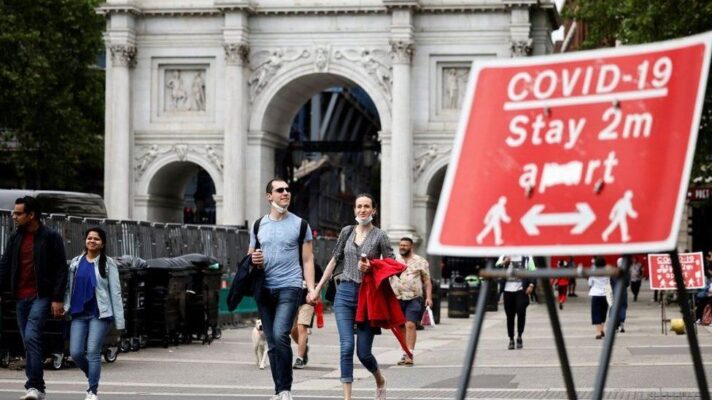
The hospitality sector has reacted with dismay to a decision to extend Covid-19 lockdown restrictions in England. Prime minister, Boris Johnson, announced earlier that the full reopening of the sector would be delayed by four weeks, until July 19th.
The decision means nightclubs will be unable to reopen, while capacity restrictions will remain in place at venues including pubs, restaurants, theatres and stadiums.
In response, UK inbound chief executive, Joss Croft, said: “Tourism businesses across the UK are balanced on a knife edge, struggling to remain viable while adhering to restrictions, and this announcement will put people’s livelihoods at risk and slow down the recovery of our towns and cities.
“Prolonging restrictions affects the whole tourism supply chain, in addition to hospitality business, and although health and safety must always come first, the government must act swiftly and implement additional support measures for both hospitality and travel businesses.”
Mark Tanzer, chief executive of ABTA echoed the call for further support.
He said: “This delay to the full reopening of the domestic economy, which follows on from the government’s recent moves to severely restrict international travel, highlights again the importance of a rethink around ongoing financial support for businesses that continue to find their trade severely constrained by government policy.
“The government must look at extending the existing support measures for businesses, including delaying the increase in furlough contributions, extending protections from commercial landlords, and keeping full business rates relief, which are due at the end of this month.”
He added: “When it comes to travel businesses, ministers need to acknowledge that even once the domestic economy unlocks, they will continue to be under constraints within the traffic-light system.
“As we head into the critical summer season, where travel companies ordinarily earn the majority of their income, we must finally see a package of tailored financial support for travel agents and tour operators.
“Without this tailored support, we will continue to witness people across the country lose their businesses, many of which are independent family firms that have been in existence for decades, and many thousands more people will lose their jobs.”
UK Hospitality urged the government to waste no time in providing details of how it will safeguard the future of thousands of venues and hundreds of thousands of jobs. Chief executive, Kate Nicholls, said: “The decision to delay is hugely disappointing but the government has judged the evidence and acted as it sees fit.
“It does, however, jeopardies the return on investment that the government has afforded hospitality and it’s crucial that further support is announced to push us over the line.”
Nicholls said the hospitality sector had already lost more than £87 billion in sales in the pandemic leaving businesses deeply in debt and at risk of suffering “economic long Covid-19” without further support.
“Our businesses face incredible levels of debt and will now face a huge cost hike, with business rates payments set to recommence and rent accruals due at the end of the month,” she added.
“A swift indication that the business rates holiday will be extended would go a long way to bringing succor to a battered sector – paying any amount of tax while still unable to trade viably would save businesses and, in turn, tax receipts in longer term.”
Finally, Julia Lo Bue-Said, chief executive the Advantage Travel Partnership, called the decision a further blow to the already beleaguered sector. “For 15 months the travel industry has been unable to trade its way to recovery due to border closers, legal barriers and a woefully short green list.
“A complete lack of government support means that many businesses are now fighting to keep the lights on,” she explained. “We urge government to ensure that, while this domestic delay is implemented, they must still allow for international travel to return safely and in a risk managed way.”
